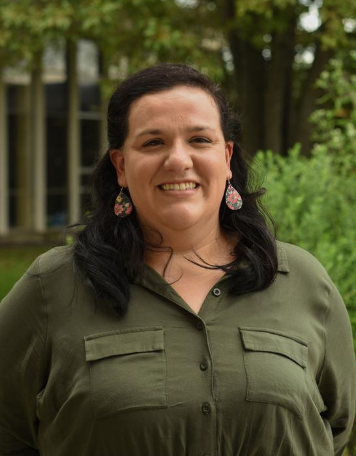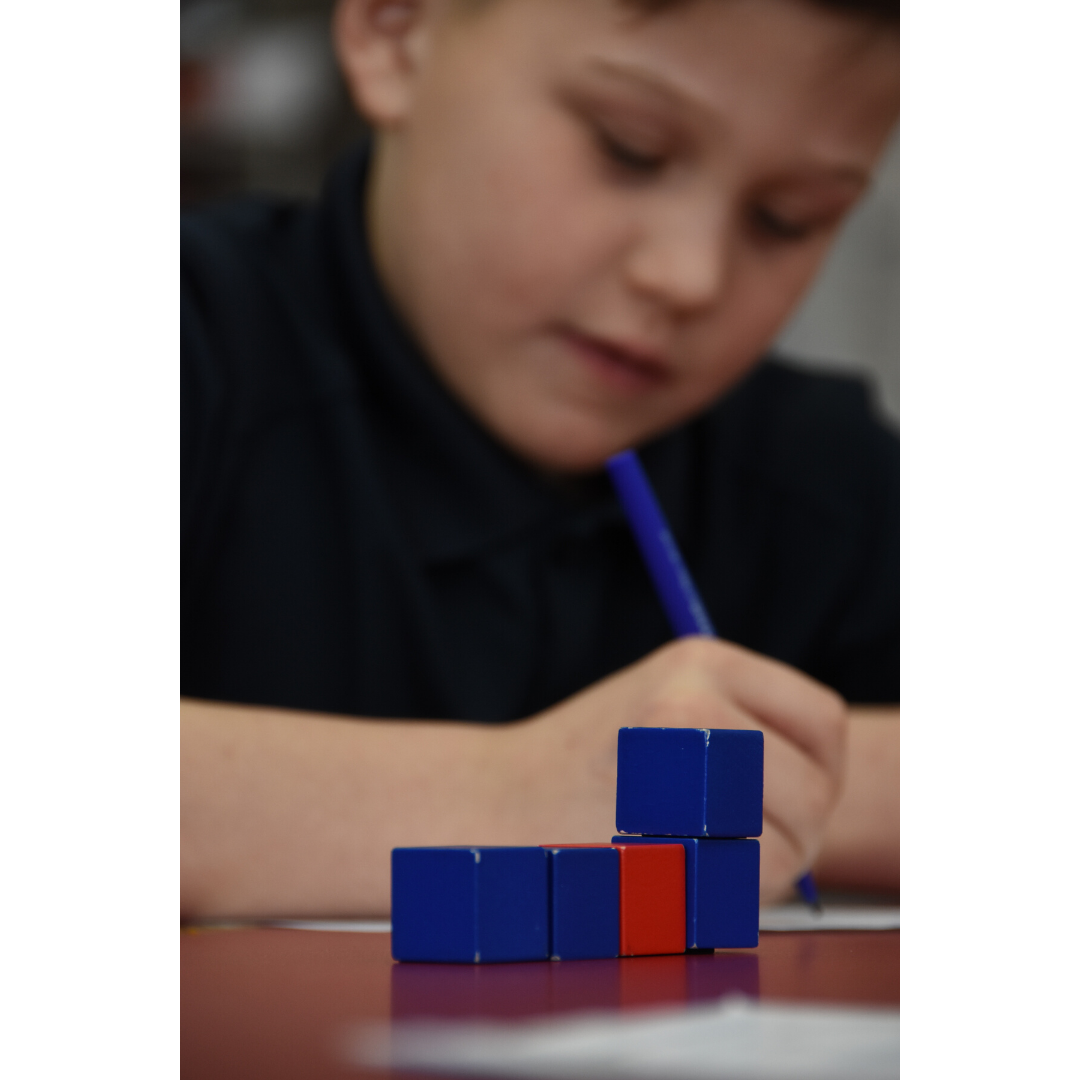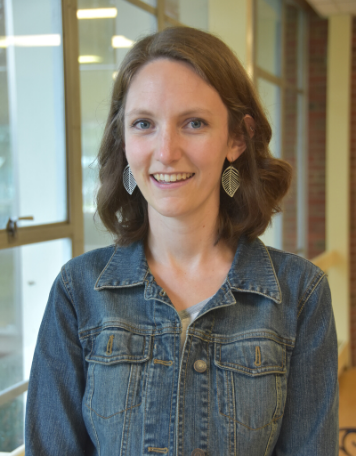Archive
Faculty Spotlight: Gricelda Garcia

September 1, 2020
“I want to be a positive influence for students, a cheerleader, helping them to reach their full potential,” says Horizon Academy teacher, Gricelda Garcia. Garcia was deeply impacted by her teachers growing up and the care they put into her education. She wants to positively impact her students in a similar way, by helping them develop a love for learning. Garcia began her teaching career at Fort Leavenworth Unified School District, where she taught elementary for 11 years. There, she saw many students with learning disabilities struggle with the curriculum. “I know how hard it can be for students with…
American Sign Language for the Dyslexia Student
August 7, 2020
American Sign Language for the Dyslexia Student By Rachel Denning, Horizon Academy Orton-Gillingham Coach and Instructor Did you know that American Sign Language (ASL) is not just a gestured version of English? It is actually a complete language of its own, with unique rules of pronunciation, word order, and grammatical markers. For this reason, many schools, including Horizon Academy, offer ASL as an option for earning foreign language credits. By studying ASL, students not only learn to communicate using a new language, they also learn about a different culture. Students begin to appreciate the unique characteristics of the Deaf community!…
Importance of Math Movement
July 6, 2020
Math + movement = Success Engaging both the mind and body Emily Staten, Lower School Teacher Imagine you’re a teacher who must cover countless math standards within a school year and your math period is the last hour of the day. By the time math class rolls around, students can’t help but feel exhausted. So what’s a teacher to do? The answer is simple, let the students move, and I’ll explain why. Movement breaks are needed in order to wake up the brain, and when you pair both movement and numeracy something magical happens. The directionality found in skip counting,…
What’s That Word?
June 4, 2020
What’s That Word? Alli Caplinger, Speech and Language Pathologist Understanding words around us is essential to meaningful communication, cognitive development, and is one of the critical pieces to reading acquisition (National Reading Pane, 2001). As stated by Rupley, Logan, and Nichols (1998/1999), ”Vocabulary knowledge is the glue that holds stories, ideas, and content together making comprehension accessible.” Visualize students with language impairments, especially those with vocabulary deficits, as tourists in another country. They may be listening to the foreign language spoken around them but are unable to find meaning in what they are hearing. As the trip goes on, they…
Accommodations and Modifications
April 17, 2020
Accommodations and Modifications by Lower School Teacher, Ann Kavanaugh When students struggle, it is important and common for schools to utilize needed accommodations and modifications to support these students and help them to be successful in school relative to their same-age peers. Yet, these should not be relied on as the only resource to help students. To be effective, accommodations and modifications are most beneficial when used with an evidence-based teaching approach by experienced teachers. It is essential that students who struggle receive these specialized services, by well-trained teachers, if they are expected to bridge the gap as they get…
Orton-Gillingham – The Transfer of Learning

April 6, 2020
by Aly Burnett, Orton-Gillingham Instructor & Tutor Transfer of Learning is the application of skills, knowledge, and/or attitudes that were learned in one situation to another learning situation (Perkins, 1992).The Orton-Gillingham approach provides cumulative and incremental lessons with multisensory instruction, while also providing individual and explicit instruction. These components are helpful to make Transfer of Learning possible. Cumulative lessons are essential. Repetition of previously taught decoding (reading) /encoding (spelling) skills within each lesson aids in generalization of rules and strategies. Adding multisensory activities helps students see concepts visually and kinesthetically, which for many students is essential for learning material. Having…
Orthographic Mapping
February 12, 2020
Written by Jill Hodge In the last few decades, scientists have learned a lot about how we learn to read and why some people have reading challenges. One of the most significant findings is orthographic mapping. Orthographic mapping is the process our brain uses to store words efficiently for permanent retrieval. To be a good orthographic mapper, you need to develop three skills: Automatic letter-sound associationsAutomatic access to the sounds in spoken words (phonemic awareness)Unconscious/conscious connection of sounds (phonemes) in spoken words to written words Before I dive into this concept, I would like to invite you to chew on these…
Digital Resources
January 15, 2020
Written By Michael McConnell, STEM Instructor I am what sociologists call a digital native. Tim Berners-Lee released the first web browser the month after I was born. (I’ll leave it to curious readers to research and calculate when that was.) There is no “pre-internet” part of my life. Computers and the internet are a part of some of my earliest memories. The internet has changed drastically over the years and not always for the better. What was originally promoted as the ultimate tool to unite the world and freely share all of human knowledge, turned out to be an equally…
Family Feature: The Millard Family

January 2, 2020
“It wasn’t until coming to Horizon Academy that we really realized how hard school had been for Will,” says current Horizon Academy parent, Michelle Millard. In early 2019, Michelle started to recognize the signs that her 2nd grade son Will, was falling behind in the classroom, especially in reading. “He would be so frustrated that there were words he didn’t know,” Michelle notes. Michelle knew that she had to take action in order for her son with learning disabilities to receive the education he deserves. Will enrolled in the June Summer Program to see if Horizon Academy would be a…
Faculty Spotlight: Holly Hammond

December 18, 2019
Holly Hammond is no ordinary educator. She is responsible for a classroom of all 4th and 5th grade boys with diagnosed learning disabilities. “I am a huge advocate for boys. So many boys are in special education and many who only experience a traditional school environment, end up dropping out during high school,” explains Hammond. Horizon Academy’s goal is to provide students with the tools necessary to become successful learners in academia. Educator’s like Hammond are using evidence-based methods like the Orton-Gillingham approach, Multisensory Math and the Concrete-Representational-Abstract method to teach our students. “It is researched-based and it works. I…
Archives
- May 2025
- March 2025
- December 2024
- November 2024
- October 2024
- September 2024
- August 2024
- July 2024
- June 2024
- May 2024
- April 2024
- February 2024
- January 2024
- December 2023
- November 2023
- October 2023
- September 2023
- August 2023
- July 2023
- June 2023
- March 2023
- February 2023
- January 2023
- March 2022
- February 2022
- January 2022
- December 2021
- November 2021
- October 2021
- September 2021
- May 2021
- April 2021
- February 2021
- January 2021
- December 2020
- November 2020
- October 2020
- September 2020
- August 2020
- July 2020
- June 2020
- April 2020
- February 2020
- January 2020
- December 2019
- November 2019
- August 2019
- July 2019
- March 2019
- February 2019
- January 2019
- December 2018
- November 2018
- October 2018
- September 2018
- July 2018
- May 2018
- April 2018
- March 2018
- February 2018
- January 2018
- November 2017
- October 2017
- September 2017
- August 2017
- July 2017
- June 2017
- May 2017
- April 2017
- March 2017
- February 2017
- January 2017
- December 2016
- November 2016
- October 2016
- September 2016
- August 2016
